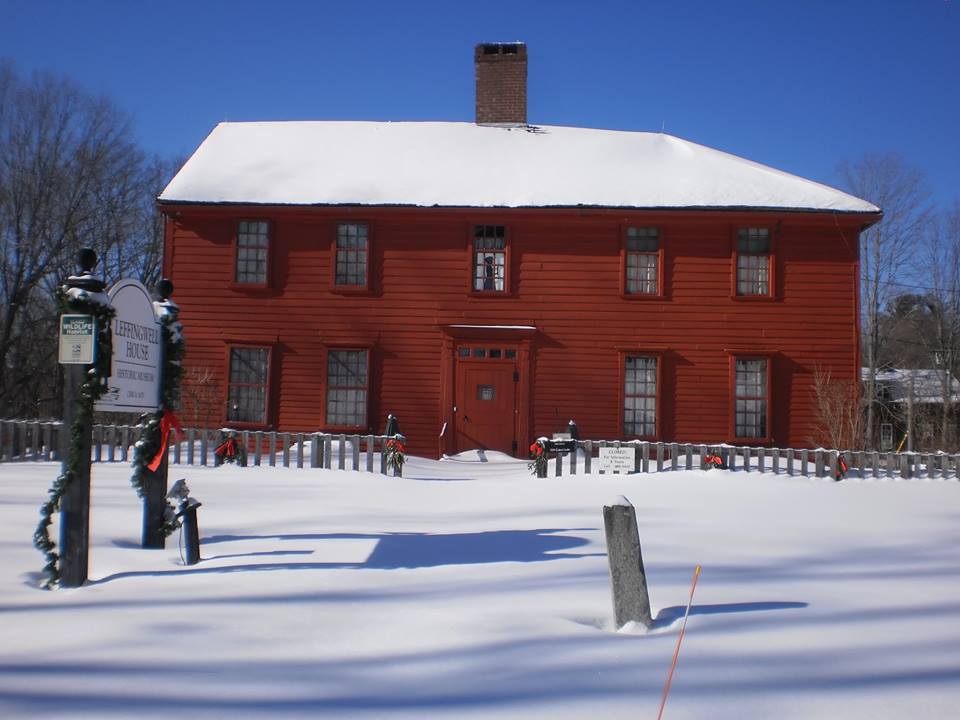Food
As Christmas approaches, historic inn breaks out eggnog

The parlour at the historic Leffingwell House Museum was decorated Sunday as George Washington’s Mount Vernon would have been outfitted for Christmas: simply, with small garnishes of mistletoe and holly. (Photo: Leffingwell House Museum/Facebook)
NORWICH, Conn. — One quart cream. One quart milk. One dozen tablespoons sugar, one pint brandy, half a pint of rye whiskey, half a pint of Jamaica rum and a quarter pint of sherry.
The parlour at the historic Leffingwell House Museum was decorated Sunday as George Washington’s Mount Vernon would have been outfitted for Christmas: simply, with small garnishes of mistletoe and holly.
But the eggnog served to museum visitors in plastic foam cups barely resembled the drink Washington would have sipped on in his own parlour.
Inspired by that boozy recipe, attributed to Washington who visited the inn on more than one occasion, museum volunteer Camilla Farlow included the drink in her menu at the annual colonial Christmas celebration. The 342-year-old house was built by Stephen Backus and later kept as an inn by the Leffingwell family.
The recipe fit with what Courtney Reardon described as a typical holiday season for an 18th-century high society household.
“Big parties with lots of booze,” said Reardon, a museum volunteer and Leffingwell House historian from East Haddam who stood by a plate of fruitcake Sunday, serving it to the parlour’s visitors. If they didn’t want eggnog, they could try another recipe on display in the museum: rum punch, an equal mixture of fruit juice, light rum, dark rum and orange curacao liquor.
The drink in the plastic foam cups on a table in the museum’s George Washington-themed parlour didn’t have any alcohol in it — just store-bought non-alcoholic eggnog and rum extract.
In another room of the museum, cookies came with a suggestion for an equally lethal colonial concoction: flip, a drink made with sugar, eggs, rum, brandy and ale.
Modern day drinkers in the museum, operated by the non-profit Society of the Founders of Norwich, got a mild, non-alcoholic cider instead.
Washington was tall, Reardon said, and was probably more accustomed to the heavy drinking of his time than the crowd in the museum would be if they tried his version of a holiday drink.
“He could hold his eggnog,” she said. And Washington wasn’t alone: “The Revolution was founded by a bunch of men who were, by our terms, drunk,” she said.
The alcohol, Farlow said, was likely a coping mechanism for long winters with no heating.
“If you look at the ingredients, it’s … to gag for,” she said. “But there wasn’t much else to keep them warm.”





















